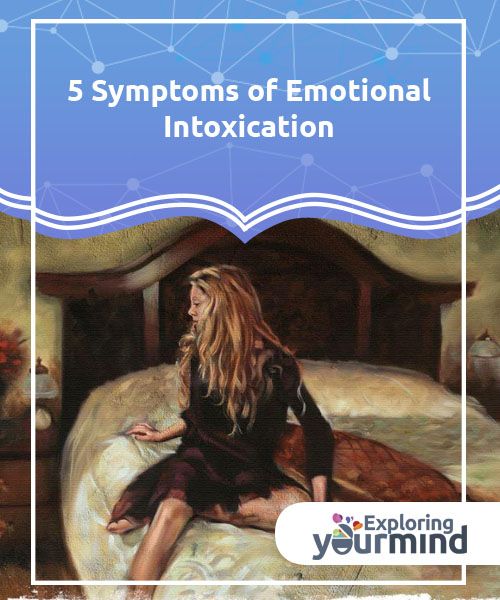I feel vulnerable, I get bored easily and, from time to time, I feel the need to run and leave everything behind, I stop being interested and I am indifferent in a millisecond, I do not see the time to finish a project, but the next moment I get bored.
I live on a constant roller coaster, laughter and crying accompany me and destabilize me in the most unexpected moments. I have to go to great lengths to separate my present and past concerns. Insecurity reigns in my life.
- I often react disproportionately and cannot clearly express my thoughts and emotions.
- Which causes me a lot of problems.
- Besides.
- I am not comfortable with anything or anyone else.
- It is as if I am drowning.
- Because I have a deep Do you need to have someone to give me a hand?.
Can you identify someone or yourself in the words above?This could be a person’s speech under the influence of emotional intoxication. Many of us understand the effects of alcohol poisoning; Is it visible how perceptions change, how the ability to react deteriorates, how does heart rate decrease?
If you live or have experienced emotional moments, you may be intoxicated. The causes are diverse as we are emotional beings in their entirety, but in any case, emotional intoxicating is the consequence of not taking the daily time to cultivate our interior.
You will look at the world through the prism of emotions, you will not care about the reasons and you will not listen to yourself or others, this may seem like a waste of time, even if there is nothing further from reality.
This can lead to nervousness and impatience in the face of unexpected emotional reactions beyond our control because we don’t know how to handle what comes next.
Your insecurities arise and control your life. You have become more receptive and often defensive. Your self-esteem is completely weakened and you feel vulnerable to any event.
Your strengths are weak and your emotions prevent you from clearly seeing the value you have and what you are capable of, this promotes the development of emotional dependence, to the point of believing that nothing can be done alone.
Taking a pass to our emotional reactions without subjecting them to a mental filter limits our ability to communicate and move forward, it is common for us to find ourselves in situations where we do not know how to act as a result of our intoxication.
Let’s just say being emotionally intoxicated prevents you from thinking before you talk and have a perspective on what’s going on.
“You should always have a cold head, a warm heart and let go, ” said Confucius. A “hot” reaction causes our emotions and impulses to explode, because we won’t be the same if we act now.
Would you define the fear of letting go? as emotional dizziness; it is only fear in its purest state, the fear of facing the emptiness of loss. It is the fear of mourning the loss of our love of sacrifice and our weakness for masochism.
You feel irritable if you leave the default scenario for your life and feel that if you defever, you will cause a sacrifice that will completely unbalance your existence, you do not feel able to live your life if you abandon those habits or people. they stay with you, but you always know something’s wrong with them.
It’s likely that if you’re intoxicated, you feel like you’re not listening to what others are saying and that not only your attention, but also your memory, are too selective.
It gets worse if you find yourself at the crossroads of a discussion, because you’ll start distorting the words you hear and draw your own conclusions, depending on your frustrations and problems.
Not that you didn’t want to do something right, but it’s a great mental effort to have different perspectives on any problem and be aware of everything, it’s not that you don’t have the energy to face the challenges of the day to day, is that you don’t feel the strength to do it.
We need to understand that when we are under the influence of our emotions and insecurities, we deteriorate enormously, we do not interpret things accurately, and we will most likely say or do things that we later regret.
Faced with these problems, the important thing is that we are aware that we are full of emotions and that we must take the time to analyze and accept them.
If we learn to quickly identify these five symptoms, we will realize our “drunkenness” status, which will allow us to withdraw in time; this retreat will end up being incredibly advantageous in our vital knowledge.
Main image credits: Little

